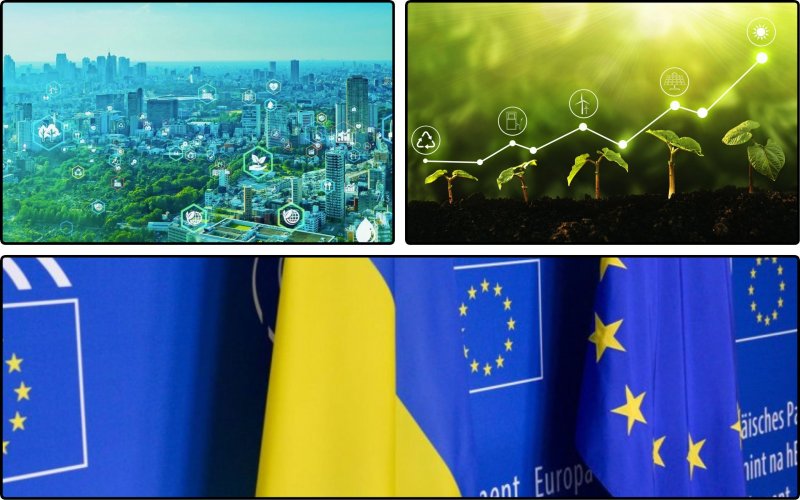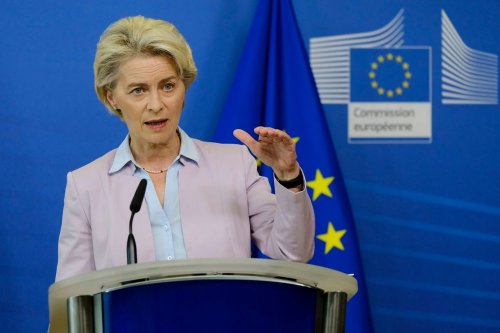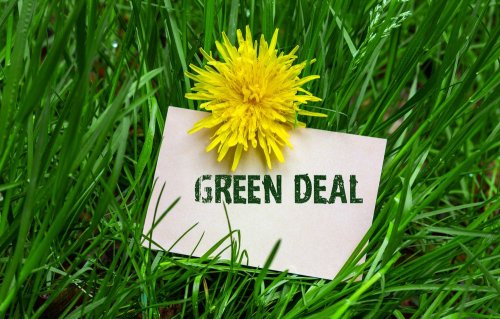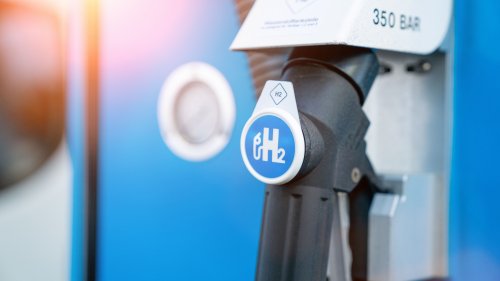Specialists of the DiXi Group analytical center have investigated the activities of the EU and Ukraine regarding the implementation of goals related to the European Green Course in the II quarter of 2023.
Despite a number of successful measures, in particular regarding the stabilization of energy markets after the crisis and the development of long-term projects, the bloc and Ukraine faced certain difficulties, according to the overview of DiXi Group and partners.
It is noted that a certain stabilization in the EU made it possible to pay attention to the introduction of financing mechanisms and a certain reduction in the intensity of anti-crisis measures. In Ukraine, it was also possible to achieve progress in the reform of the spheres of EWC and strengthen cooperation with the EU.
Among the positive trends in Ukraine, the study named:
- reforming RES generation support schemes;
- reforming waste management;
- joining the new cooperation mechanisms with the EU, in particular the Seville process.
Analysts also named the key trends of the II quarter of 2023, which create opportunities for strengthening the green post-war recovery of Ukraine and cooperation with the EU:
- stabilization of energy markets, which reduced wholesale prices;
- difficulties with the approval of legislative acts in the field of environmental protection against the background of the upcoming elections in the EU;
- strengthening EU cooperation with partner countries, in particular with Ukraine, in the fields of climate, energy and environmental protection;
- continuation of the political debate on the reform of key EU energy markets, in particular electricity and renewable gases;
- development of new financial mechanisms, expansion of taxonomy and strengthening of control in the field of ESG investment assessment;
- the announcement of new financial support mechanisms for the green recovery of Ukraine (in particular, a separate fund in the amount of up to 50 billion euros).
It is noted that the key areas in which certain reforms took place were:
-
Energy markets
In the II quarter of 2023, mostly secondary legislation regarding the development of energy markets and their decarbonization was adopted in the EU. At the same time, the electricity market reform proposed in March 2023 needs final approval by both co-legislators (the EU Council and the European Parliament).
-
RES
Analysts highlighted that the EU has been working to deepen partnerships to strengthen global efforts to combat climate change, particularly through the deployment of green technologies. At that time, Ukraine was working on the "framework" of green recovery and the preparation of a sustainable energy system. Thus, draft law No. 9011-d "On amendments to some laws of Ukraine Regarding Restoration and Green Transformation of the Energy System", which provides for a number of innovations in the support of renewable energy sources, was adopted.
-
Energy efficiency
"In the reporting quarter, the EU continues to work on improving the system of certification, labeling and eco-design of products in order to increase their durability, reduce disposal costs and increase consumer awareness when choosing green products," the study said.
DiXi Group added that the implementation of energy efficiency programs and measures was also continued in Ukraine. In particular, the updating of ecodesign requirements in accordance with EU requirements and projects to improve the energy efficiency of buildings. A special budget fund for decarbonization and energy-efficient transformation was also created.
-
Climate policy
The article emphasized that in three months, the EU adopted a number of acts within the framework of the package Fit for 55, including the reform of the Emissions Trading System (ETS), the Carbon Import Adjustment Mechanism (CBAM) and the creation of a Social Climate Fund (SCF).
The authors added that in Ukraine, the process of conducting an initial assessment of the state of implementation of EU legal acts, in particular in the field of environmental and climate protection, is ongoing. Currently, the results of the assessment are not available to the general public. Also, the Ministry of Environmental Protection and Natural Resources published for discussion recommendations on the development of regional ecological programs for environmental protection, as well as launched an online service for registering installations in the Unified Register for monitoring, reporting and verification of greenhouse gas emissions.
-
Environmental protection and pollution reduction
It is noted that EU institutions failed to make progress in approving important legislation in the field of environmental protection. Further work on the development of environmental legislation is expected in Ukraine as well.
-
Waste management and circular economy
Analysts emphasized that the EU and Ukraine have made progress in this area. In particular, the Council of the EU agreed on a number of normative acts on waste in various areas aimed at reducing the negative impact on the environment.
"At the same time, a number of draft acts were developed and published in Ukraine, aimed at bringing them closer to the rules of waste management in the EU. Active work in these directions is expected during the following reporting periods," they said.
-
Financial instruments
It is noted that the EU actively developed legislation on green investments, promoting the implementation of green transformation at the level of member states, strengthening support for Ukraine, as well as regular activities of the European Commission within the framework of the EU budget process. The proposals will be further processed by the EU institutions. Subsequent monitoring reports will track progress and provide recommendations to Ukrainian stakeholders.
Analysts recommend to the relevant departments of Ukraine:
- to monitor the progress of the electricity market reform in the EU, in particular regarding the protection of consumers from price fluctuations;
- take into account the experience of implementing mechanisms to support the deployment of RES in the EU when implementing the new legislation of Ukraine;
- take into account the change in environmental labeling in the EU and the ban on the use of general environmental claims such as "environmentally friendly", "natural", etc., if they are not accompanied by detailed evidence;
- take into account the latest changes in EU legislation in the formation of an effective negotiating position of Ukraine in future accession negotiations;
- strengthen work on the implementation of taxonomy approaches at the national level and take into account recent changes to the EU Taxonomy and other sustainable investment assessment mechanisms.
Previously, EcoPolitic analyzed how the environmental policy of Ukraine has changed over the past year.





